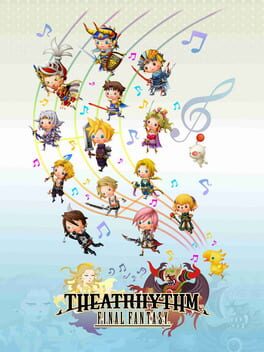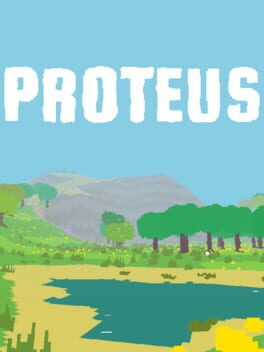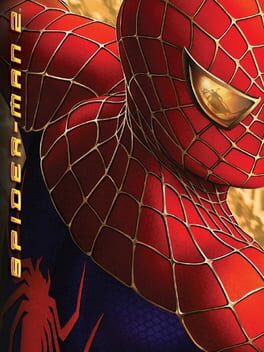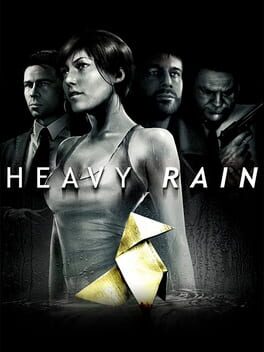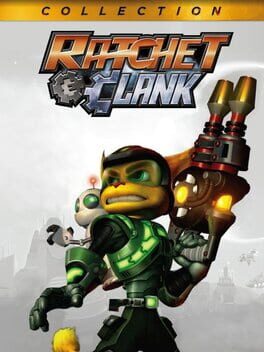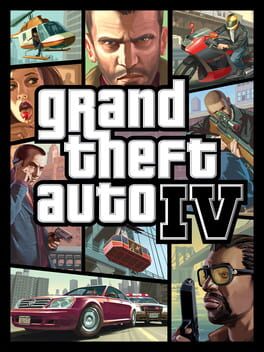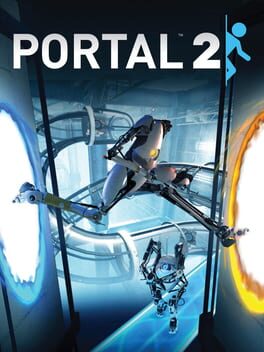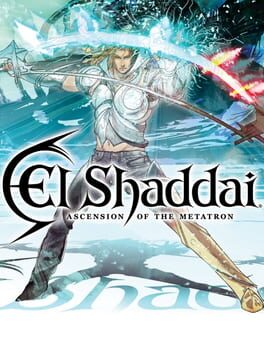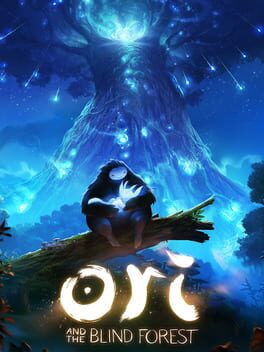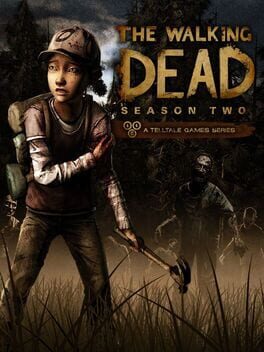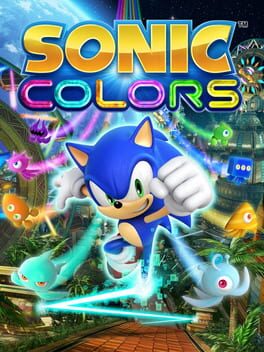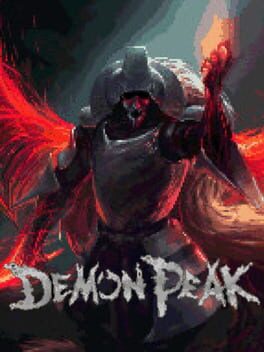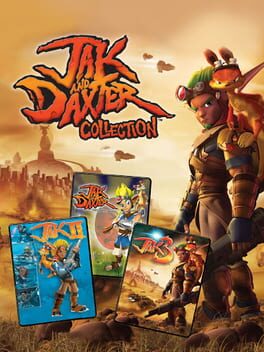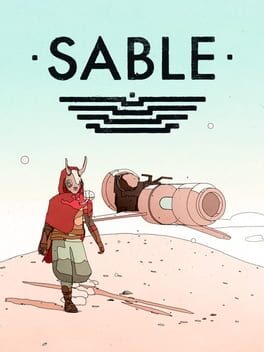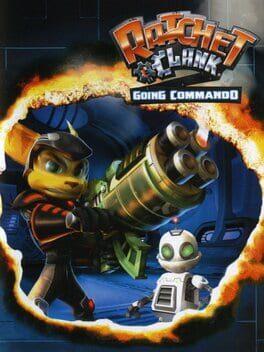IriidaV
EU copy played on a Nintendo 3DS XL.
This is an excellent rhythm game - even if you're totally unfamiliar with the FF games and their plots like I am, there's absolutely no denying that the franchise has some of the best, most recogniseable and iconic music of the video-game medium. Even the titles past Nobuo Uematsu's involvement have a fairly solid score of catchy melodies and beautiful harmonies.
The gameplay itself is split into three modes but all pretty much boil down to the same way to play, with taps, swipes and holds being the only method of inputs. It sounds like it would get stale fast, especially in comparison to other rhythm games' methods but the variation of speeds and input requirements coupled with the difficulty options keep your attention span longer than it has any right to. Unlocking your favourite characters and levelling them up is satisfying, even if I never quite figured out the item system and there's a solid pick of tunes you play along the way.
Honestly this is a must-own for the 3DS system.
This is an excellent rhythm game - even if you're totally unfamiliar with the FF games and their plots like I am, there's absolutely no denying that the franchise has some of the best, most recogniseable and iconic music of the video-game medium. Even the titles past Nobuo Uematsu's involvement have a fairly solid score of catchy melodies and beautiful harmonies.
The gameplay itself is split into three modes but all pretty much boil down to the same way to play, with taps, swipes and holds being the only method of inputs. It sounds like it would get stale fast, especially in comparison to other rhythm games' methods but the variation of speeds and input requirements coupled with the difficulty options keep your attention span longer than it has any right to. Unlocking your favourite characters and levelling them up is satisfying, even if I never quite figured out the item system and there's a solid pick of tunes you play along the way.
Honestly this is a must-own for the 3DS system.
2013
EU release played via Steam on a Fujitsu Lifebook A532.
Proteus is such an odd game. During the craze of walking sims and people questioning their validity as "real video-games" (yes this was a real argument the internet was split over), there was a real wealth of unique experiences that had never been capitalised on before with the main attraction ultimately being to lose yourself in a artistically-specific environment with the possibility of no violence whatsoever.
I like to believe we've come a long way since those days but in comparison to titles such as "Gone Home" or "The Vanishing of Ethan Carter", Proteus is almost a non-game. There is no goal, that I could find anyway, and so while there are triggers to change the scenery and colours around you, there is no end either. Where other games demand you to get to checkpoint A while killing enemies in order to progress the plot, Proteus asks you to just chill out and wonder for a bit, soaking in the atmosphere and sounds it provides you.
It really is a beautiful experience and it's nice to just relax to for up to an hour, but you'll realise you've seen everything it has to offer fairly quickly which prevented me from enjoying it as much as I could have.
Proteus is such an odd game. During the craze of walking sims and people questioning their validity as "real video-games" (yes this was a real argument the internet was split over), there was a real wealth of unique experiences that had never been capitalised on before with the main attraction ultimately being to lose yourself in a artistically-specific environment with the possibility of no violence whatsoever.
I like to believe we've come a long way since those days but in comparison to titles such as "Gone Home" or "The Vanishing of Ethan Carter", Proteus is almost a non-game. There is no goal, that I could find anyway, and so while there are triggers to change the scenery and colours around you, there is no end either. Where other games demand you to get to checkpoint A while killing enemies in order to progress the plot, Proteus asks you to just chill out and wonder for a bit, soaking in the atmosphere and sounds it provides you.
It really is a beautiful experience and it's nice to just relax to for up to an hour, but you'll realise you've seen everything it has to offer fairly quickly which prevented me from enjoying it as much as I could have.
2004
What's left to say about this game? It single-handedly set the bar for how superhero games should be whilst providing one of the best experiences with web-swinging that future games would struggle to surpass. Having played the more recent titles from Insomniac, this definitely feels dated in many ways, but it's still a fun time if you have the nostalgia for it and the movie.
2010
EU copy played on a PlayStation 3 Slim.
On your own, Heavy Rain is not a gripping game - it's a depressing slog of a story that telegraphs its twists in an unremarkably obvious way with a control scheme that is downright frustrating at the best of times.
In a party setting though? Like the slasher movie, this game takes on a whole life of its own. Assigning a person to a character for the entire playthrough in one sitting is an experience I'll never forget, and with a healthy dose of alcohol and snacks this game become so much more entertaining than the developers intended.
I will take the revelation of discovering I had been the killer all along and rolling with it to try and kill my friends in the finale to my final days.
On your own, Heavy Rain is not a gripping game - it's a depressing slog of a story that telegraphs its twists in an unremarkably obvious way with a control scheme that is downright frustrating at the best of times.
In a party setting though? Like the slasher movie, this game takes on a whole life of its own. Assigning a person to a character for the entire playthrough in one sitting is an experience I'll never forget, and with a healthy dose of alcohol and snacks this game become so much more entertaining than the developers intended.
I will take the revelation of discovering I had been the killer all along and rolling with it to try and kill my friends in the finale to my final days.
2008
EU copy played via the Complete Edition on a PlayStation 3 Super Slim.
GTAIII changed the gaming landscape forever; Vice City expanded on the entertaining gameplay; San Andreas provided a compelling story. So what did Grand Theft Auto IV do?
Well, all of the above all over again really, albeit to a lesser extent in comparison to the combined trilogy. GTA had a reputation of being THE open-world satirical crime drama with real violence, which over the course of the PlayStation 2's life cycle slowly morphed into "with cartoonish violence". Not that the violence on display was any less shocking, but in comparison to other games around San Andreas' release, Rockstar's engine was beginning to show its age a little.
So when GTAIV dropped on the scene, with a new art direction more grounded in realism, it was quite the shock to many people. Movement felt less arcadey, with a real sense of weight and delay to character animations and driving maneuvability. The story itself expanded on the tone SA had already established but also pushed itself by focussing in the here and now. There was no glorification of past time periods here, it was very much a depressing look at the situation modern immigrants can find themselves in whilst moving to America, and GTAIV held no punches.
Mission design felt a lot more seemless, with the huge expanse of a city made of various islands alongside multiple buildings you would traverse on top of and through throughout the story and the lack of required loading screens making the game feel more natural.
The core gamplay itself was fun, with the classic playground exploration still being encouraged via secrets and extra activities, and the overall story of Nico arriving in an America completely devoid of the expectations he had was incredibly compelling. GTAIV marked a huge turning point in the franchise's overall style and presentation but it never quite felt like the wrong turn to me.
GTAIII changed the gaming landscape forever; Vice City expanded on the entertaining gameplay; San Andreas provided a compelling story. So what did Grand Theft Auto IV do?
Well, all of the above all over again really, albeit to a lesser extent in comparison to the combined trilogy. GTA had a reputation of being THE open-world satirical crime drama with real violence, which over the course of the PlayStation 2's life cycle slowly morphed into "with cartoonish violence". Not that the violence on display was any less shocking, but in comparison to other games around San Andreas' release, Rockstar's engine was beginning to show its age a little.
So when GTAIV dropped on the scene, with a new art direction more grounded in realism, it was quite the shock to many people. Movement felt less arcadey, with a real sense of weight and delay to character animations and driving maneuvability. The story itself expanded on the tone SA had already established but also pushed itself by focussing in the here and now. There was no glorification of past time periods here, it was very much a depressing look at the situation modern immigrants can find themselves in whilst moving to America, and GTAIV held no punches.
Mission design felt a lot more seemless, with the huge expanse of a city made of various islands alongside multiple buildings you would traverse on top of and through throughout the story and the lack of required loading screens making the game feel more natural.
The core gamplay itself was fun, with the classic playground exploration still being encouraged via secrets and extra activities, and the overall story of Nico arriving in an America completely devoid of the expectations he had was incredibly compelling. GTAIV marked a huge turning point in the franchise's overall style and presentation but it never quite felt like the wrong turn to me.
2011
EU copy played on a Xbox 360.
The perfect sequel and bigger in virtually every way. The original Portal birthed somewhat of a miniature meme culture around it with the whole cake and sarcastic AI business, and while it was a great, small-scale experience, it was rather straight forward once you'd arrive at its narrative twist. Portal 2 however ramps everything up in terms of its world, gameplay and puzzle design, and executes it all flawlessly. The co-op stuff was similarly fun but if you managed to find yourself playing with a friend who had either blasted through it with someone else already or had a different skill level of problem solving to you it could be a frustrating experience at times.
The perfect sequel and bigger in virtually every way. The original Portal birthed somewhat of a miniature meme culture around it with the whole cake and sarcastic AI business, and while it was a great, small-scale experience, it was rather straight forward once you'd arrive at its narrative twist. Portal 2 however ramps everything up in terms of its world, gameplay and puzzle design, and executes it all flawlessly. The co-op stuff was similarly fun but if you managed to find yourself playing with a friend who had either blasted through it with someone else already or had a different skill level of problem solving to you it could be a frustrating experience at times.
EU copy played on a PlayStation 3 Super Slim.
El Shaddai: Ascension of the Metatron is not a very good game. It attempts to be a Devil May Cry-esque action game with combos and the unique gimmick of stealing enemies' weapons to use against them. The controls can be kinda floaty at times and take a while to get accustomed to. The story is bat-shit insane and kinda difficult to follow due to the lack of any real substantial exposition.
That being said I kinda love this game. The artstyle is the first to pop out at you - it does it's best to feel like what the forces of heaven and hell imagine the mortal plane of existance to look like and it does a damn good job at that with a mixture of harmonising, light colours and incredibly abstract environments and character designs. The design of the player character and the angel helping him feels jarring at first but when you realise they're agents of heaven just wearing some jeans and a shirt with some plate armour, the intent of all these design choices all kind of clicks in your head.
The flow of combat takes a while to get used to and honestly is probably the weaker parts of the game. Stealing enemy weapons and cleansing them feels satisfying but it can be easy in some of the later stages to get overwhelmed and some bosses will intentionally kick your ass with little to no explanation that it was supposed to happen.
The story itself can be very hit or miss depending on how literal and expository you like your plots to be - you play as Enoch, the biblical scribe before the flood, and your task is to hunt down seven fallen angels to stop the flood from destroying the world. On your first play through there is absolutely no way you're going to catch all of that and it feels like the game is being intentionally vague and hand wavy at the best of times. However, if old biblical lore through a modern Japanese lense is your kind of jam then I'd recommend you at least check this game out. If nothing else your eyes will enjoy what they're looking at.
El Shaddai: Ascension of the Metatron is not a very good game. It attempts to be a Devil May Cry-esque action game with combos and the unique gimmick of stealing enemies' weapons to use against them. The controls can be kinda floaty at times and take a while to get accustomed to. The story is bat-shit insane and kinda difficult to follow due to the lack of any real substantial exposition.
That being said I kinda love this game. The artstyle is the first to pop out at you - it does it's best to feel like what the forces of heaven and hell imagine the mortal plane of existance to look like and it does a damn good job at that with a mixture of harmonising, light colours and incredibly abstract environments and character designs. The design of the player character and the angel helping him feels jarring at first but when you realise they're agents of heaven just wearing some jeans and a shirt with some plate armour, the intent of all these design choices all kind of clicks in your head.
The flow of combat takes a while to get used to and honestly is probably the weaker parts of the game. Stealing enemy weapons and cleansing them feels satisfying but it can be easy in some of the later stages to get overwhelmed and some bosses will intentionally kick your ass with little to no explanation that it was supposed to happen.
The story itself can be very hit or miss depending on how literal and expository you like your plots to be - you play as Enoch, the biblical scribe before the flood, and your task is to hunt down seven fallen angels to stop the flood from destroying the world. On your first play through there is absolutely no way you're going to catch all of that and it feels like the game is being intentionally vague and hand wavy at the best of times. However, if old biblical lore through a modern Japanese lense is your kind of jam then I'd recommend you at least check this game out. If nothing else your eyes will enjoy what they're looking at.
Digital EU version played on an Xbox One X.
For a 10 hour experience you can certainly do a lot worse than this game. Sound and visuals are consistently top notch and whilst the narrative can feel almost clinical in its attempt to pull on your heartstrings, the gameplay is consistently fun and engaging, always encouraging you to explore and experiment with your abilities.
Except the flooding tree sequence. Fuck that.
For a 10 hour experience you can certainly do a lot worse than this game. Sound and visuals are consistently top notch and whilst the narrative can feel almost clinical in its attempt to pull on your heartstrings, the gameplay is consistently fun and engaging, always encouraging you to explore and experiment with your abilities.
Except the flooding tree sequence. Fuck that.
EU release played via Steam on a Lenovo Y50-70.
I remember enjoying the first Season a few years back at the height of my enjoyment of the comics - it was a fresh way to explore a pre-established IP through the lenses of different characters that you could still empathise with but didn't have the guarantee of surviving. I enjoyed the characters of Lee and Clementine and the ending of that game is still fairly memorable to me.
That being said, wow did this sequel miss the mark. It started off well with it's characters and representing a wide view with different situations they were put through. But by the end I just didn't care about anyone, even though I tried helping them and siding with people the main character just ended up getting dicked over by everybody, so much so that I ended up leaving the last characters to go out on my own in the end choice.
I get that The Walking Dead really likes to drive home the theme of "people are dicks and you can't trust them" a lot of the time, but when everyone who is left is just a piece of trash even when you've spent so much time trying to get them on your good side with the dialogue options, it just feels like a shitty way to reward the players' time.
Overall, play the first game. While the journey in this game was captivating pretty much the whole way, the ending was disappointing and there were gameplay elements such as the items you obtain that never get used that just don't make any sense.
I remember enjoying the first Season a few years back at the height of my enjoyment of the comics - it was a fresh way to explore a pre-established IP through the lenses of different characters that you could still empathise with but didn't have the guarantee of surviving. I enjoyed the characters of Lee and Clementine and the ending of that game is still fairly memorable to me.
That being said, wow did this sequel miss the mark. It started off well with it's characters and representing a wide view with different situations they were put through. But by the end I just didn't care about anyone, even though I tried helping them and siding with people the main character just ended up getting dicked over by everybody, so much so that I ended up leaving the last characters to go out on my own in the end choice.
I get that The Walking Dead really likes to drive home the theme of "people are dicks and you can't trust them" a lot of the time, but when everyone who is left is just a piece of trash even when you've spent so much time trying to get them on your good side with the dialogue options, it just feels like a shitty way to reward the players' time.
Overall, play the first game. While the journey in this game was captivating pretty much the whole way, the ending was disappointing and there were gameplay elements such as the items you obtain that never get used that just don't make any sense.
2010
I enjoyed my time with this game at the time but in recent years, it shows its age and limitations in comparison to its contemporary Sonic titles. The continuation and evolution of the boost mechanic is welcome, and with the additional power of the Whisps (that future Sonic games would oddly return to, creating a very strange sense of continuity without fully commiting) it makes stage traversal fun and imaginitive.
Obviously being on the Wii, Sonic Colours runs at 480p but thankfully also at 60hz so it at least feels like a smooth experience even if it being between Unleashed and Generations leaves it feeling like a forced mid-trilogy downgrade. Sound direction is solid as always and the soundtrack is brightly poppy with great electronic beats. The story is a much more low-key affair in comparison to previous titles of Eggman's quest for world domination via an elder god of some kind but its really here where the "meta" era of Sonic begins in the English scripts, with a lot of self references to its franchise whilst poking fun at itself. It's fine, it does its job at maintaining the family-friendly vibe, but there's also a sense of cynicism creeping in which I've recently grown weary of.
Overall, a solid Sonic title for the Wii - a shame it was only released for that console (at the time) but hardly any worse compared to Unleashed and Generations because of it.
Obviously being on the Wii, Sonic Colours runs at 480p but thankfully also at 60hz so it at least feels like a smooth experience even if it being between Unleashed and Generations leaves it feeling like a forced mid-trilogy downgrade. Sound direction is solid as always and the soundtrack is brightly poppy with great electronic beats. The story is a much more low-key affair in comparison to previous titles of Eggman's quest for world domination via an elder god of some kind but its really here where the "meta" era of Sonic begins in the English scripts, with a lot of self references to its franchise whilst poking fun at itself. It's fine, it does its job at maintaining the family-friendly vibe, but there's also a sense of cynicism creeping in which I've recently grown weary of.
Overall, a solid Sonic title for the Wii - a shame it was only released for that console (at the time) but hardly any worse compared to Unleashed and Generations because of it.
2017
EU release played via Steam on a Lenovo Y50-70.
What an utterly fantastic metroidvania. The music and atmosphere of the levels are the first things that capture you and with the wonderful creature and enemy designs, this is a hard game to put down. The jumping does take a bit of time to get used to and you will find yourself dying on multiple occasions at the same point. But Demon Peak lets you experiment, going back to previous levels to get more gold and abiities before moving forward again.
A couple technical hiccups, namely the odd screen-length line of black pixels appearing in one particular point at a level and another experience where I had closed the game but could still hear the music, forcing me to go to the Task Manager and finding it in the background processes. But other than those two minor issues I can't say there were any game-breaking bugs.
Overall, well worth the price of admission and definitely an instant favourite of the pixelated adventure genre.
What an utterly fantastic metroidvania. The music and atmosphere of the levels are the first things that capture you and with the wonderful creature and enemy designs, this is a hard game to put down. The jumping does take a bit of time to get used to and you will find yourself dying on multiple occasions at the same point. But Demon Peak lets you experiment, going back to previous levels to get more gold and abiities before moving forward again.
A couple technical hiccups, namely the odd screen-length line of black pixels appearing in one particular point at a level and another experience where I had closed the game but could still hear the music, forcing me to go to the Task Manager and finding it in the background processes. But other than those two minor issues I can't say there were any game-breaking bugs.
Overall, well worth the price of admission and definitely an instant favourite of the pixelated adventure genre.
2021
EU release played on a Xbox One X.
Update: it's now been 3 months with various updates and the game still runs poorly on Xbox One X. Maybe in a few years I'll give this game another shot on the Series lineup but for now I'm too bitter to touch it for a good while. Sable should never have been released on Xbox One/X.
Original review:
To say Sable is a Breath of the Wild clone is both a disservice and fairly apt - it's story is more one of personal self discovery and finding one's place in the world which I have been highly enjoying, but the clunky controls and poor frame pacing leave more to be desired.
When the controller isn't being touched, Sable is a wholly beautiful game, with its Moebius-inspired artstyle really being pulled off immaculately (despite the low fidelity on both character and environment models) with warm inviting colours during the day and blue hues for the night. The sound design soothes you in both its calming melodies and weird, alien noises and the soundtrack provided by Japanese Breakfast is simply enchanting. The story premise and characters in the introductory area are melancholic in a way befitting of a lost Ghibli movie or one of the many AA/indie games in the past decade such as Journey, The Last Guardian, or The Pathless.
On the surface level, Sable is simply a stunning-looking game.
Trying to control the character however is when things go wrong - the input latency here is real, with movement and jumping taking up to half a second to register, making the BotW-style running, jumping and climbing extremely awkward and clumsy. There were several instances where I ran to the edge of a cliff and simply fell off because the jump button didn't register in time, making simple platforming a frustrating task.
The movement and handling of the bike is also a harrowing experience - if you ever played Jak II for the PlayStation 2 it feels exactly like that game's hover-bike races: overly-tight steering with the bike never quite being able to balance on even stable ground properly, let alone on a patch of dirt with a few rocks. It's always juddering about the place, which wouldn't feel quite so bad if the maximuk speed felt too slow. I understand Shedworks were aiming for a calm game with low levels o of adrenaline, and I don't need to be blasting off across the environment at 200 miles per hour, but the first bike felt at most maybe twice the speed of the player character's and the personalised bike you get a bit later barely feels any faster. There's a great big expanse you can explore in this game but traversal just feels like it drags a little.
And then there's the framerate itself - to say it's unstable is simply an understatement. I assumed that the poor frame-pacing and complete and total slow down of the game's visuals and audio were simply my poor, weak Xbox One X simply not being strong enough to handle all the action(?) on screen, but even folks with a Series X are reporting stuttering game play with no clear reason for it. The one guaranteed instance of the slow down is whenever new quests are accepted, where the whole game siezes up for a couple of seconds before it manages to stabilise again. I can't tell of 30fps is meant to be the target here simply because it never raises above that, which makes the stylistic choice of the choppy character animation frustrating to see in motion.
All in all, Sable is disappointing. I've been relatively hyped for this game for a few years now, but the poor optimisation on display here is simply annoying to witness. I'd leave trying this out until a good few patches are released to help stabilise everything.
Update: it's now been 3 months with various updates and the game still runs poorly on Xbox One X. Maybe in a few years I'll give this game another shot on the Series lineup but for now I'm too bitter to touch it for a good while. Sable should never have been released on Xbox One/X.
Original review:
To say Sable is a Breath of the Wild clone is both a disservice and fairly apt - it's story is more one of personal self discovery and finding one's place in the world which I have been highly enjoying, but the clunky controls and poor frame pacing leave more to be desired.
When the controller isn't being touched, Sable is a wholly beautiful game, with its Moebius-inspired artstyle really being pulled off immaculately (despite the low fidelity on both character and environment models) with warm inviting colours during the day and blue hues for the night. The sound design soothes you in both its calming melodies and weird, alien noises and the soundtrack provided by Japanese Breakfast is simply enchanting. The story premise and characters in the introductory area are melancholic in a way befitting of a lost Ghibli movie or one of the many AA/indie games in the past decade such as Journey, The Last Guardian, or The Pathless.
On the surface level, Sable is simply a stunning-looking game.
Trying to control the character however is when things go wrong - the input latency here is real, with movement and jumping taking up to half a second to register, making the BotW-style running, jumping and climbing extremely awkward and clumsy. There were several instances where I ran to the edge of a cliff and simply fell off because the jump button didn't register in time, making simple platforming a frustrating task.
The movement and handling of the bike is also a harrowing experience - if you ever played Jak II for the PlayStation 2 it feels exactly like that game's hover-bike races: overly-tight steering with the bike never quite being able to balance on even stable ground properly, let alone on a patch of dirt with a few rocks. It's always juddering about the place, which wouldn't feel quite so bad if the maximuk speed felt too slow. I understand Shedworks were aiming for a calm game with low levels o of adrenaline, and I don't need to be blasting off across the environment at 200 miles per hour, but the first bike felt at most maybe twice the speed of the player character's and the personalised bike you get a bit later barely feels any faster. There's a great big expanse you can explore in this game but traversal just feels like it drags a little.
And then there's the framerate itself - to say it's unstable is simply an understatement. I assumed that the poor frame-pacing and complete and total slow down of the game's visuals and audio were simply my poor, weak Xbox One X simply not being strong enough to handle all the action(?) on screen, but even folks with a Series X are reporting stuttering game play with no clear reason for it. The one guaranteed instance of the slow down is whenever new quests are accepted, where the whole game siezes up for a couple of seconds before it manages to stabilise again. I can't tell of 30fps is meant to be the target here simply because it never raises above that, which makes the stylistic choice of the choppy character animation frustrating to see in motion.
All in all, Sable is disappointing. I've been relatively hyped for this game for a few years now, but the poor optimisation on display here is simply annoying to witness. I'd leave trying this out until a good few patches are released to help stabilise everything.
Possibly my favourite of the PS2 Ratchet & Clank games, Going Commando takes everything from the original and ratchets (hah) it up to 11 - the rpg mechanics and supplementary guns and armours were a great addition and the tweaked controls to allow for strafing were very much appreciated. A 480p, 60hz experience here and an amazing one at that.
